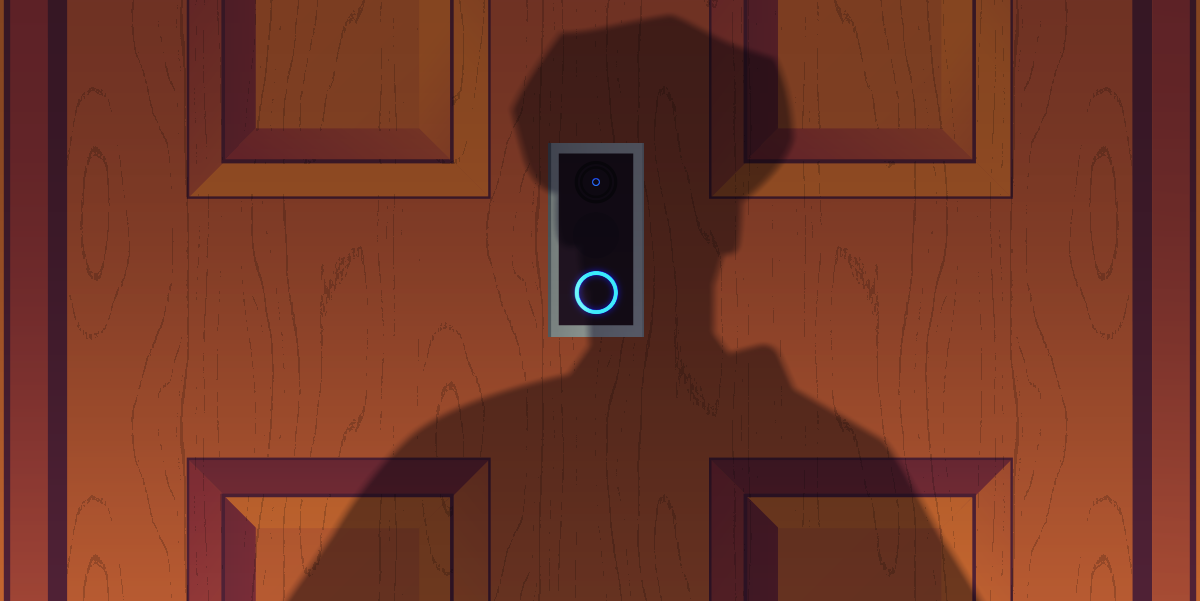| Previous
Page |
PCLinuxOS
Magazine |
PCLinuxOS |
Article List |
Disclaimer |
Next Page |
Ring Reveals They Give Videos To Police Without User Consent Or A Warrant |
|
by Jason Kelley and Matthew Guariglia  Amazon's Ring devices are not just personal security cameras. They are also police cameras—whether you want them to be or not. The company now admits there are "emergency" instances when police can get warrantless access to Ring personal devices without the owner's permission. This dangerous policy allows police, in conjunction with Ring, to decide when access should be granted to private video. The footage is given in "cases involving imminent danger of death or serious physical injury to any person." The company has provided videos to law enforcement, without a warrant or device owner consent, 11 times already this year. This admission comes in response to a series of critical letters from Senator Ed Markey (D-MA). Markey chastised the company over many of the same privacy problems that EFF has brought up, including the far-reaching audio capabilities of Ring devices, and the company's refusal to commit to not incorporate facial recognition technology into their cameras. Amazon must consider the danger these products pose to the public by creating a growing web of surveillance systems that are owned by individuals, but are de-facto operated by law enforcement. Police are not the customers for Ring; the people who buy the devices are the customers. But Amazon's long-standing relationships with police blur that line. For example, in the past Amazon has given coaching to police to tell residents to install the Ring app and purchase cameras for their homes—an arrangement that made salespeople out of the police force. The LAPD launched an investigation into how Ring provided free devices to officers when people used their discount codes to purchase cameras. Ring, like other surveillance companies that sell directly to the general public, continues to provide free services to the police, even though they don't have to. Ring could build a device, sold straight to residents, that ensures police come to the user's door if they are interested in footage—but Ring instead has decided it would rather continue making money from residents while providing services to police. These cameras can exacerbate racial profiling. They can also make people feel more paranoid, rather than more secure, because of the constant alerts the device is capable of providing. Before this latest admission, Ring has faced other controversies about the way it facilitates police access to user footage. Ring had enabled police to send bulk requests directly to many device owners over a large area. Police did so at a staggering level: in 2020, for example, police requested videos over 20,000 times. In 2021, however, Ring caved to activist pressure and changed how police send requests, requiring them to publicly post them to the Neighbors app, which shed important light on these requests. The "emergency" exception to this process allows police to request video directly from Amazon, and without a warrant. But there are insufficient safeguards to protect civil liberties in this process. For example, there is no process for a judge or the device owner to determine whether there actually was an emergency. This could easily lead to police abuse: there will always be temptation for police to use it for increasingly less urgent situations. Sen. Markey also raised concerns about Ring's audio recording of people in public places, and asked Amazon for information about this. The company failed to clarify the distance from which Ring products can capture audio recordings. Earlier this year, Consumer Reports revealed that Ring's audio capabilities are more powerful than anyone anticipated, collecting conversation-level audio from up to 25-feet away. This has disturbing implications for people who walk, bike, or even drive by dozens of these devices every day, not knowing that their conversations may have been captured and recorded. The company also refused to commit to eliminating the default setting of automatically recording audio. In addition, the company refused in its response to Sen. Markey to commit to making end-to-end encryption the default storage option for consumers—though it is available as an option as of 2021. We thank Senator Markey for raising these issues. For too long, Amazon has not taken seriously the many civil liberties concerns with its Ring products. We hope the strong response to these latest admissions will help push Amazon to make privacy overhauls. The company must consider the danger these products pose to the public by creating a growing web of surveillance systems that are owned by individuals, but are de-facto operated by law enforcement. |


